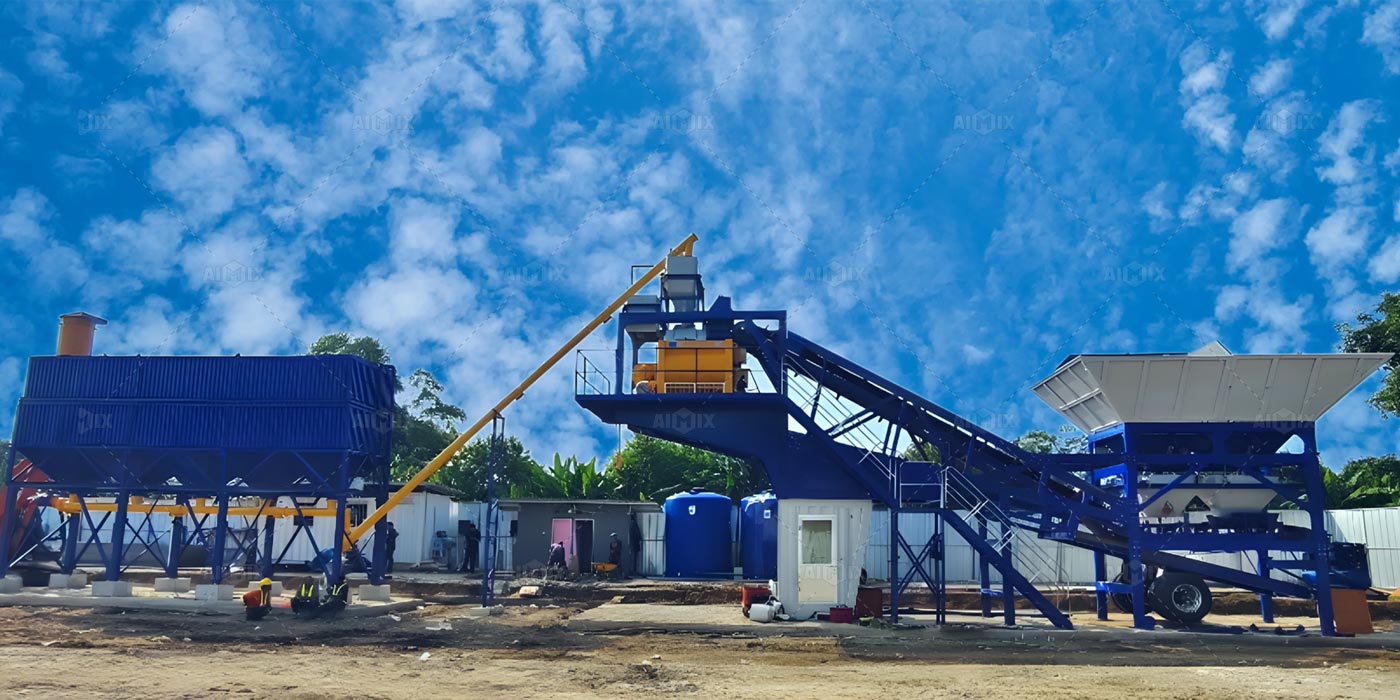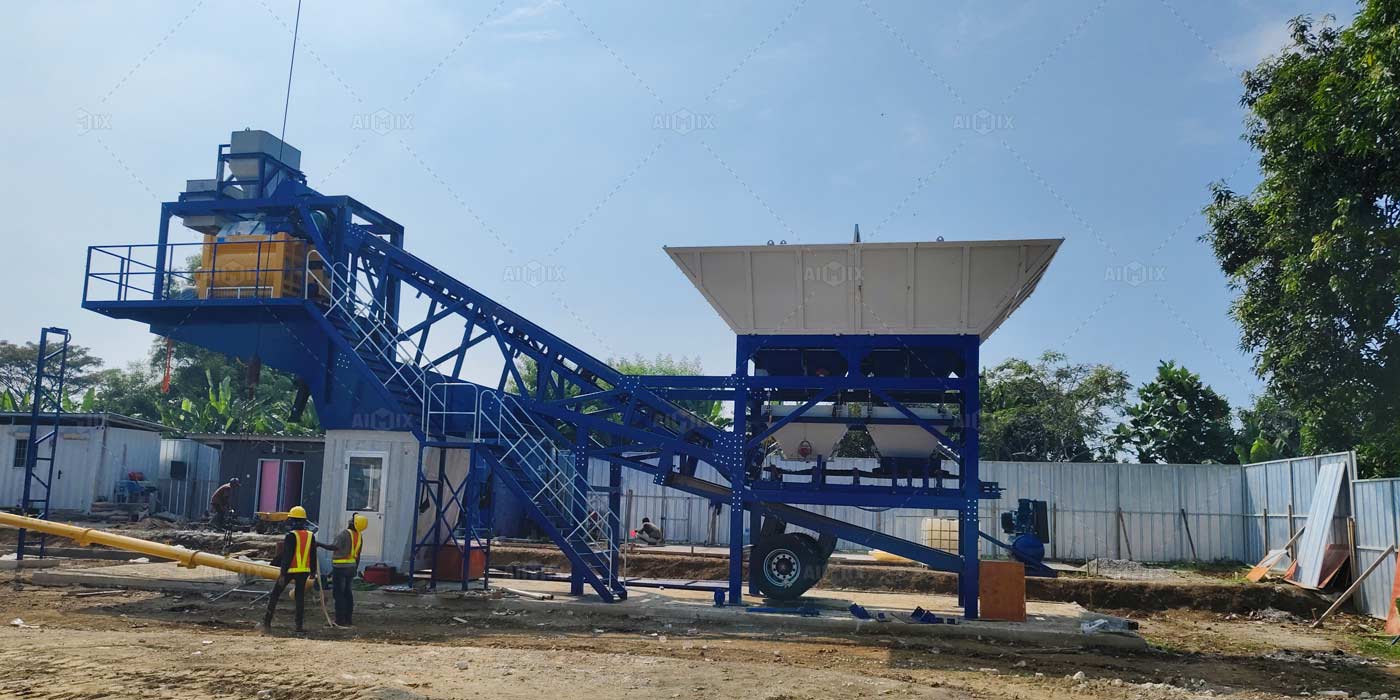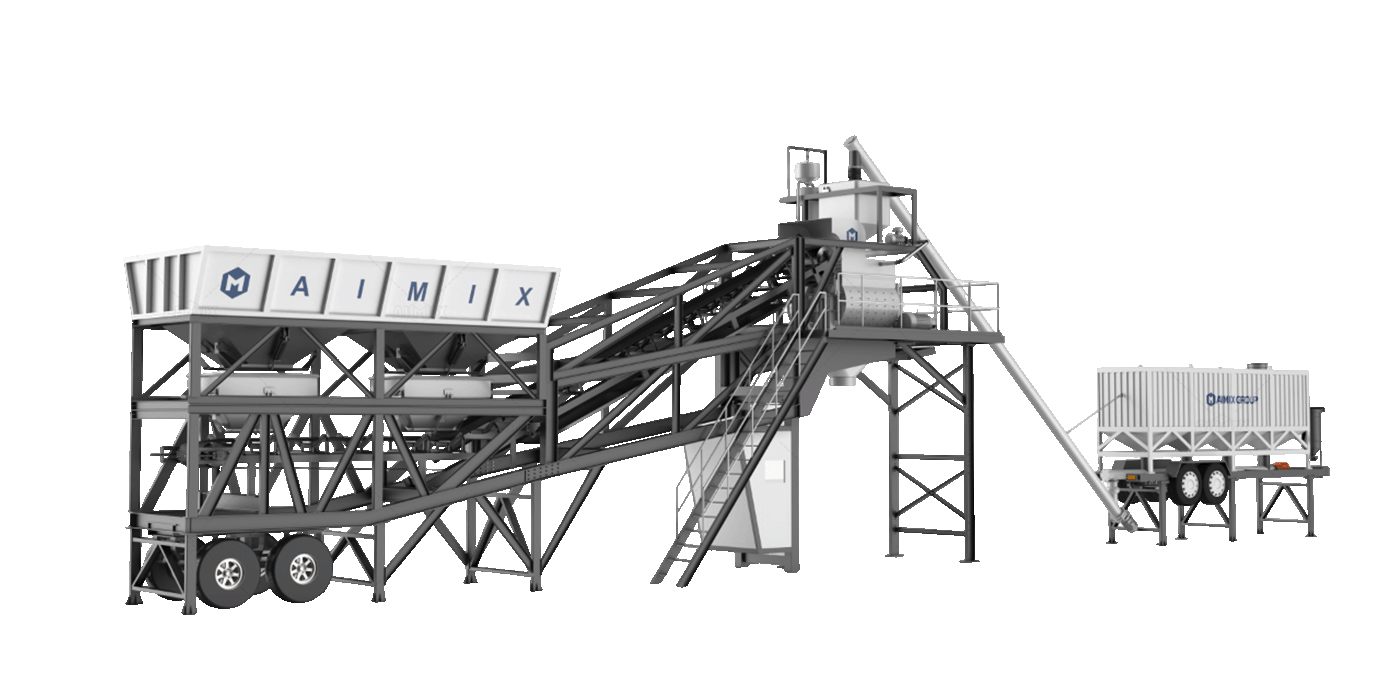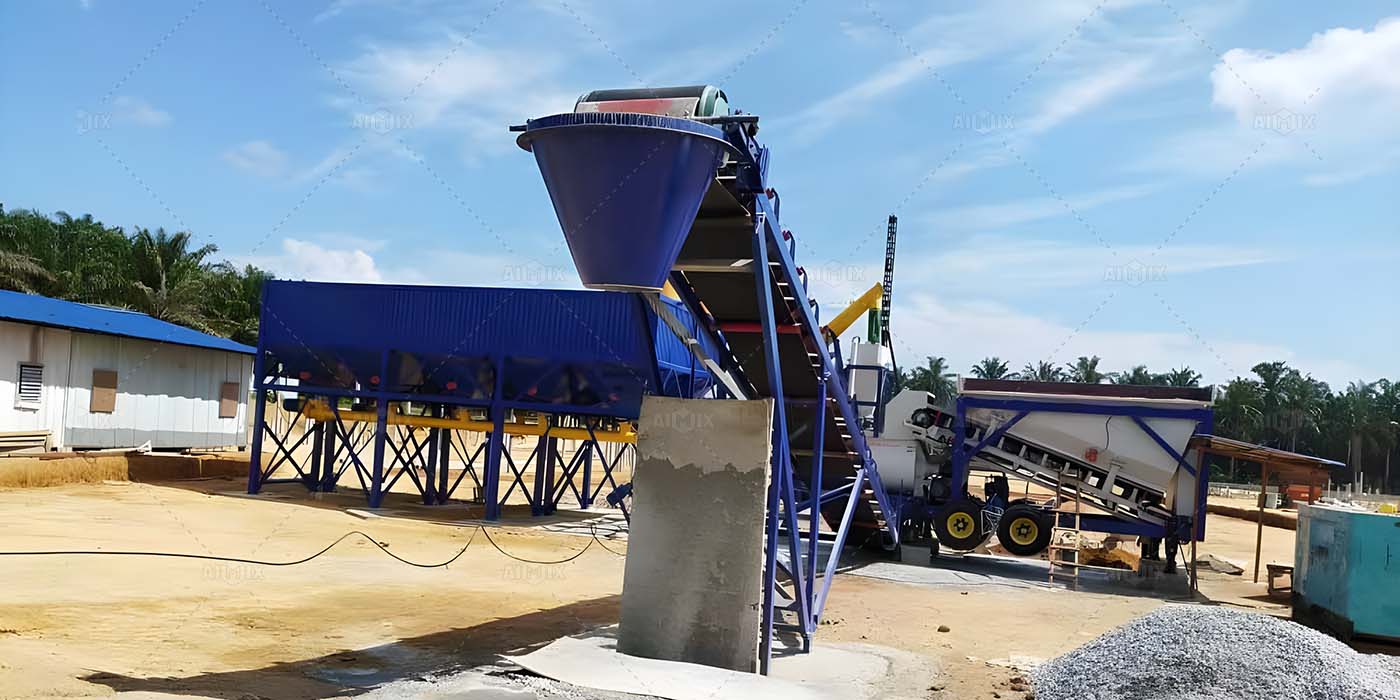Discover whether a 60 m³/h mobile batching plant can meet the needs of temporary road projects with multiple sites in Sumatra. Learn how its capacity, mobility, and cost-effectiveness help contractors save time, reduce costs, and ensure consistent concrete supply on-site.

When contractors in Sumatra take on temporary road projects, they often face a common question: how to supply enough concrete across multiple sites without wasting time or money. A 60 m³/h mobile concrete batching plant for sale looks like a practical option, but can it really keep up with the demand of such projects? Let’s look deeper into the challenges, advantages, and how this plant fits the needs of contractors working in dynamic conditions.

Temporary road projects usually involve scattered work areas. For example, one section may require base layer pouring, while another needs concrete for drainage channels. Because of this, the concrete demand is not always steady. Sometimes you need 50 m³ in one day, but only 10 m³ the next. This irregularity makes choosing the right batching plant even more important.
At the same time, road projects in Sumatra often face logistical challenges. Construction sites are located far from towns, and transporting ready-mix concrete over long distances can reduce quality and increase cost. Therefore, having an on-site solution becomes a real advantage.
After understanding the demand pattern, it is easier to see why a mobile batching plant provides a better solution than stationary plants. Since road works move from site to site, flexibility matters. A mobile type batching plant equipment can be transported and set up quickly, which saves both time and cost. Instead of relying on long-distance supply, contractors gain direct control of their concrete production.
Furthermore, mobile batching plants reduce idle time. Workers don’t need to wait for trucks to arrive from a central plant. Instead, they can produce exactly the volume required on site. This ensures higher efficiency and prevents material waste.

The next question is capacity. Can a 60 m³/h mobile batching plant handle temporary road construction in Sumatra? In most cases, the answer is yes. Road construction rarely requires continuous large-volume pouring like high-rise building projects. Instead, the demand is spread across different sites and phases.
If your team works two shifts a day, a 60 m³/h rmc plant can produce more than 800 m³ of concrete in one day. This is more than enough for temporary road foundations, sidewalks, and drainage works. Even when demand is lower, the plant can operate flexibly without causing waste.
Of course, contractors could choose larger plants, but bigger is not always better in this context. A higher-capacity stationary plant may struggle with relocation. By contrast, a 60 m³/h mobile plant offers a balanced mix of productivity and portability. This balance makes it more cost-effective for projects that involve multiple small to medium sites.

Besides capacity and mobility, contractors can also benefit in other ways. First, they reduce transportation costs. With concrete produced on site, fewer mixer trucks are required, and fuel expenses decrease. Second, the concrete quality is more consistent, since it is freshly mixed and directly placed. Third, having control over production scheduling helps avoid delays and improves project timelines.
In addition, the plant can be relocated as projects progress. For example, once one section of road is finished, the plant can be moved closer to the next section. This adaptability matches perfectly with the scattered nature of temporary road projects.
When we connect all these points, it becomes clear that a 60 m³/h mobile batching plant is not just capable, but highly suitable for temporary road projects with multiple sites in Sumatra. Its balance of output, mobility, and efficiency makes it a practical investment for contractors who need flexibility without sacrificing quality.
If you are planning such projects, choosing the right equipment can be the difference between delays and smooth progress. A 60 m³/h mobile batching plant offers the control, adaptability, and cost-effectiveness you need. Contact us today to discuss how this plant can support your projects in Sumatra and beyond.